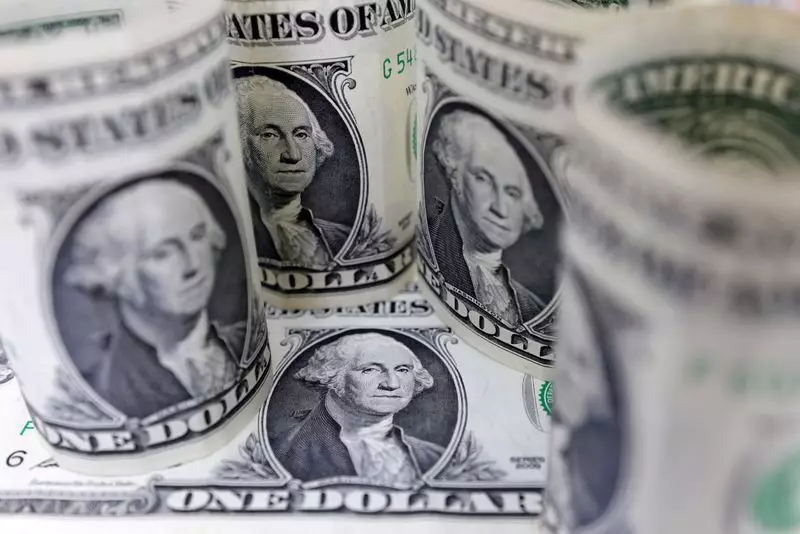As the U.S. approaches its presidential election, significant fluctuations in financial markets reflect uncertainties that traders grapple with in light of evolving political dynamics. The dollar, in particular, finds itself on shaky ground as voters head to the polls, signaling potential shifts in both economic policy and currency value based on election outcomes.
Market sentiment about the election has significantly impacted the dollar’s performance. Traders often alter their positions based on perceived probabilities of election outcomes, and with Democratic candidate Kamala Harris gaining traction in polls, speculations about potential shifts in U.S. policies have begun to surface. Harris’s surge, albeit slight, against Republican candidate Donald Trump has caught the attention of financial analysts and betting platforms alike.
In the weeks leading to election day, the market appeared to favor Trump due to his administration’s previous economic policies, perceived as inflationary. Analysts reported this leaning resulted in an uptick in U.S. Treasury yields and, correspondingly, a stronger dollar. However, opinion polls signaling a tight race, including surprising leads for Harris in traditionally Republican regions, have reversed some market momentum. This volatility was underscored when the dollar faced a sharp decline against the euro, hitting its lowest point in three weeks and raising alarms about trader readiness for potential surprises post-election.
Markets thrive on predictability, and uncertainties surrounding election results can lead to heightened volatility. As analysts suggest, the dollar index—a barometer measuring the currency against six global peers—remained relatively stable but not immune to the turbulence caused by shifting polling data. A recent skid for the index to its lowest since October 21 illustrates how quickly sentiment can shift based on political developments.
Moreover, with expectations of potential delays and disputes over vote counting, traders are bracing for increased currency volatility. Carol Kong’s insights from the Commonwealth Bank of Australia indicate that, depending on the outcome, the dollar could see a modest decline between 1% and 2% if a Harris victory is confirmed, while gains might materialize quickly should Trump win. This delicate balance of expectations creates a particularly interesting environment where even minor shifts in polling data can have outsized impacts on currency values.
In the wake of stark developments, traders are assessing how financial policies may adjust under different administrations. Should Trump succeed, his known support for certain economic policies, including those favoring the dollar in the long term, could lead to renewed currency stability. Conversely, a Harris administration might redirect economic priorities, thereby requiring markets to recalibrate their long-term strategies.
Bitcoin’s recent climb amid election uncertainty is also noteworthy, as investors appear to view cryptocurrencies as a hedge against potential market instability. The digital currency’s price fluctuations suggest a changing landscape where traditional and alternative assets are vying for investor attention as uncertainties loom large.
In a broader context, the upcoming meetings of central banks, including the Federal Reserve, the Bank of England, and the Reserve Bank of Australia, are critical moments for investors. The anticipated interest rate cuts could further shape perceptions about U.S. economic health and influence the dollar’s trajectory. The insights into expected adjustments from these institutions reveal underlying concerns surrounding labor market softness and inflation targets.
As the U.S. elects its next president, investors are faced with navigating a financial landscape fraught with both opportunity and risk. The immediate reactions of currency markets to polling shifts exemplify how deeply entwined economic conditions are with political events. The potential for significant swings in dollar value, depending on the election outcome, underscores the importance of political context in financial forecasting.
While traders prepare for whatever may come with Tuesday’s results, the overarching sentiment suggests that adaptive strategies will be necessary in the weeks to follow, regardless of which candidate emerges victorious. As history has shown, elections often lead to seismic shifts in policy and market perception—factors that traders are continually adjusting for as they plot their next moves in an unpredictable landscape.

